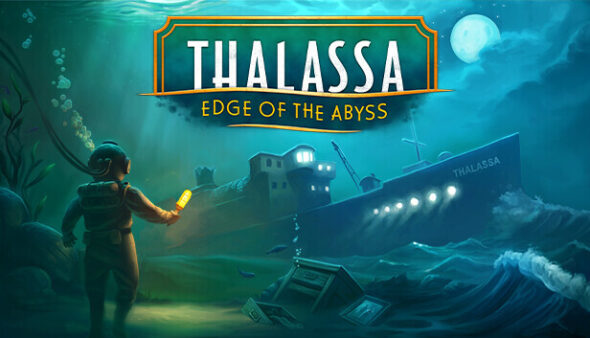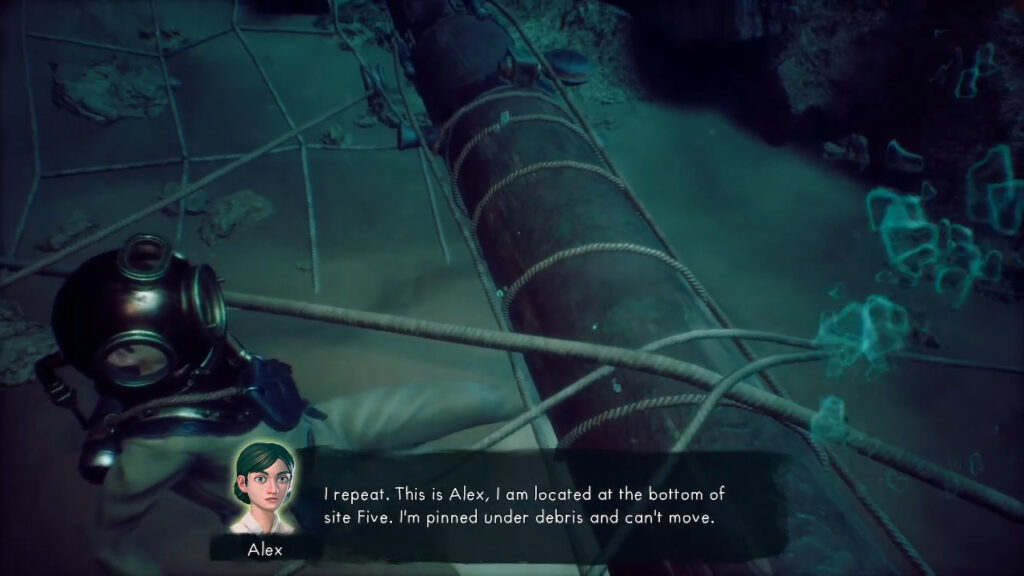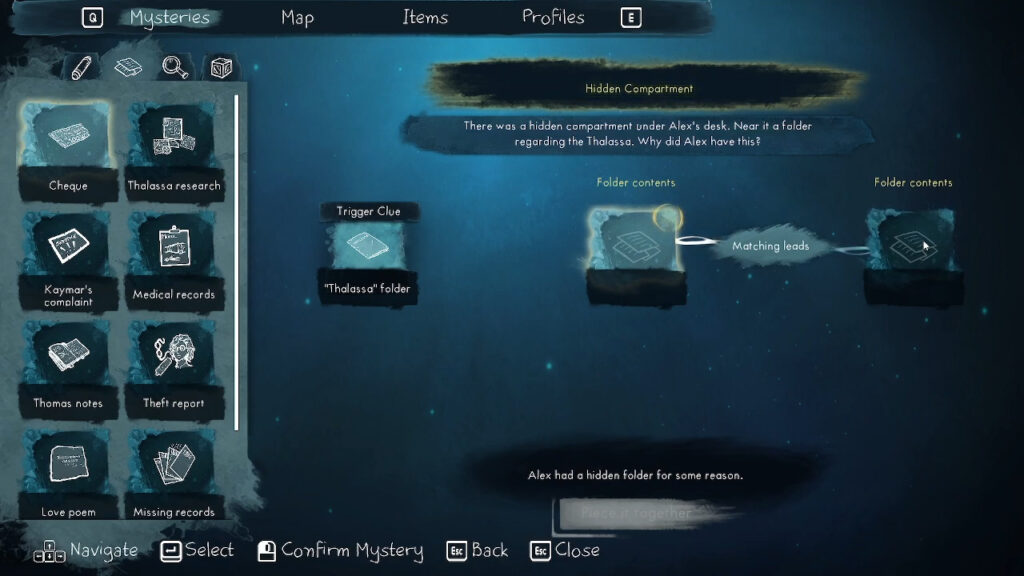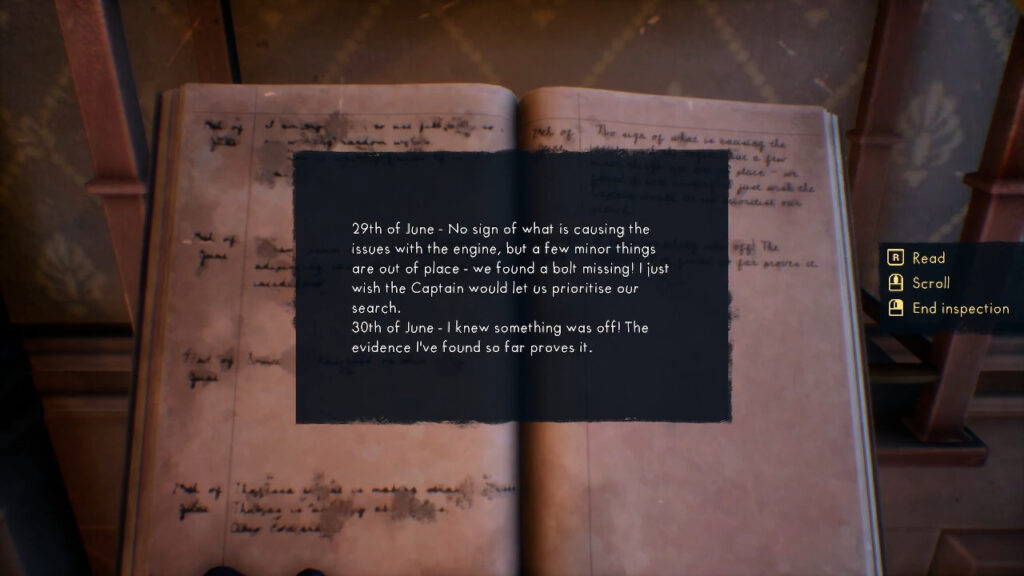
Developer: Sarepta Studio AS
Publisher: Team17
Platform: PC, PS4, Xbox One
Tested on: PC
Thalassa: Edge of the Abyss – Review
Whether it’s the beauty of Endless Ocean or the horrors of Bioshock, the depths of the sea have provided a suitable setting for countless video games. As a result, we’re no strangers to exploring virtual oceans. When the opportunity to review Thalassa: Edge of the Abyss presented itself, we were eager to dive in. Having returned from our underwater expedition, is Thalassa’s abyss worth gazing into or is it just a bunch of nautical nonsense?
Story
The name Thalassa in the game’s title refers to the S.S. Thalassa, a salvage ship. It is the year 1905 and the Thalassa is on an expedition to recover the St. Catherine, a Spanish galleon that sank somewhere in the Antilles. Protagonist Cam is a member of the Thalassa’s crew. Disaster strikes while Cam is on shore, however, and the Thalassa goes down. What was supposed to be a simple archaeological expedition turns into a way to get closure on the fate of his former crewmates as Cam tries to find out why the ship sank. Mustering the best equipment he can find, Cam descends into the abyss. It’s not the darkness of the abyss itself that holds the biggest secrets, however. We’ll stop spoiling things here, because Thalassa is one of those games that benefits from players knowing as little as possible beyond the initial premise. The narrative does require some suspension of disbelief, but if you go with the underwater flow, you’ll find a compelling and mesmerizing story here.
Graphics
We’re conflicted about Thalassa’s graphics. This is a fantastic-looking game, with beautiful underwater environments, filled with lavish details. The aquatic wildlife looks realistic, as do the insides of the Thalassa’s wreck, which feels like an actual ship that has been lived and worked in. The human character models are a bit more cartoonish, although this didn’t break our immersion. What did though, was the visual performance. Thalassa is plagued by instances of stuttering, screen tearing, and visual lag. It may just be the case that the game was too heavy for our mid-range hardware to handle, and your mileage may vary depending on how powerful your PC is, but from what we gather, this isn’t an isolated issue with the game.
Sound
Audio-wise, Thalassa does a lot with a little. There is barely any music in the game. Instead, the ambient sounds of the abyss take center stage here. You’ll hear the bubbles of air emerging from your suit, your footsteps, and the metal creaking of the shipwreck. This approach is both appropriate and realistic. Cam is a silent protagonist, but the other characters in the game are fully voiced. This is one of those games where we recommend using headphones, because of how immersive the soundscape is, even if it is minimalistic.
Gameplay
From the get-go, Thalassa subverts expectations. This isn’t a diving sim, nor a horror game. Yes, it takes place underwater, and there is a constant feeling of dread and unease as you explore the watery grave of your former friends. At its core though, Thalassa is a mystery adventure game in the same vein as the Sherlock Holmes and Hercule Poirot games… except it is presented as if it were a walking sim of sorts. Thalassa serves up a linear experience, and it’s unlikely you’ll get stuck while you’re playing the game. Heck, despite this being the early 1900s, it’s as if Cam’s diving equipment is better than that of modern-day divers. You’ll never run out of oxygen and your light has a seemingly infinite battery. There is also no way to die as far as we could tell. In theory, a game as straightforward and worry-free as this could serve as a relaxed way to unwind, but the fantastic storytelling and unsettling atmosphere of the subaquatic depths successfully conjure up chills throughout. It’s a shame that technical rough edges prevent players from fully immersing themselves in what Thalassa wants to achieve.
Presented from a first-person perspective, players explore the wreckage, looking for clues and items to help progress through Thalassa’s story. There are over 50 mysteries to solve, tied to a deduction board. It’s a simple matter of filling in the blanks based on the clues you’ve gathered from notes, books, and even wax scrolls that are scattered across the shipwreck. We should note that Thalassa is perhaps even stricter than Ace Attorney Investigations when it comes to connecting clues though: you’ll need to do this in the exact order that the game expects, even if it wouldn’t make a logical difference if two clues were swapped. There are no inventory puzzles to worry about. Any items you pick up to open new pathways are automatically used by Cam whenever relevant. Fortunately, you have a handy map of the ship to make sure you don’t get lost, and in all honesty, you do need it. There is quite a bit of backtracking in Thalassa, although this is handled in such a way that retracing your steps makes sense. When you revisit a room, things will have changed. Suddenly, a cupboard has opened up, for example, allowing you to obtain a new clue. It’s here that Thalassa’s suspension of disbelief is definitely a factor, because the linear nature of the game and the way things open up often seems a bit too convenient to feel realistic.
Still, it’s not that suspension of disbelief that proved to be Thalassa’s greatest weakness. Instead, technical issues plague the game. Interacting with objects was a struggle, both when playing with a controller and with a mouse and keyboard. When you see the ‘interact’ icon, it’s often difficult to line up your mouse with the object, and even when you do get it right, the animation for Cam’s arm takes way longer than it should. During our time with the game, we also experienced several crashes, which definitely put a damper on things. There are no manual saves here either, so we had to rely on the game’s autosave feature and replay parts of the game due to no fault of our own. The game’s slow performance wasn’t just limited to the visuals either: navigating menus felt cumbersome. The issues weren’t prominent enough to render the game unplayable, but we’re hoping that a performance patch or two down the line will make the game more streamlined. Not that we’ll be returning to Thalassa any time soon. While it’s a lot longer than we expected, clocking in at around 10 hours from start to finish, there is little replay value here. Still, for €19.99, it’s worth playing through Thalassa at least once.
Conclusion
We really wish we could tell you that Thalassa is a must-play game, because it is an excellent showcase of atmospheric storytelling. However, a good chunk of what makes Thalassa so great is invalidated by the myriad of technical issues that plague the game. This is a game that tries to be as immersive as possible, through excellent writing, a fantastic audiovisual presentation, and accessible gameplay. It doesn’t help that you’re randomly taken back to your desktop then. As it stands, Thalassa is still worth seeking out, but we’d recommend waiting for a patch before fully committing to exploring this shipwreck.









No Comments